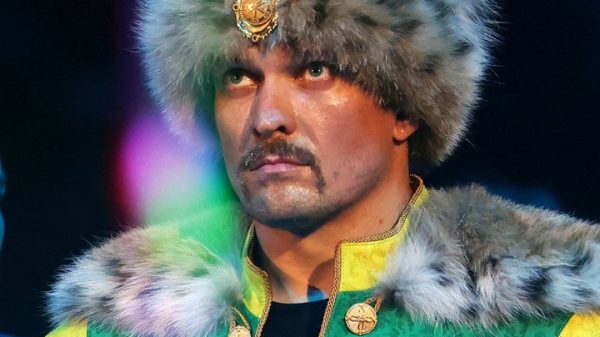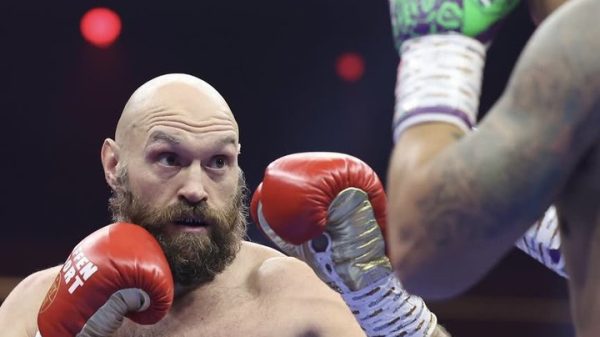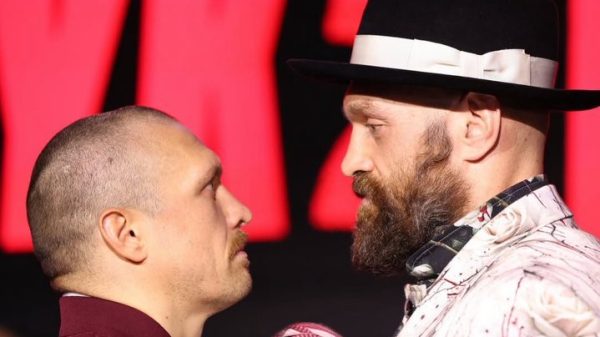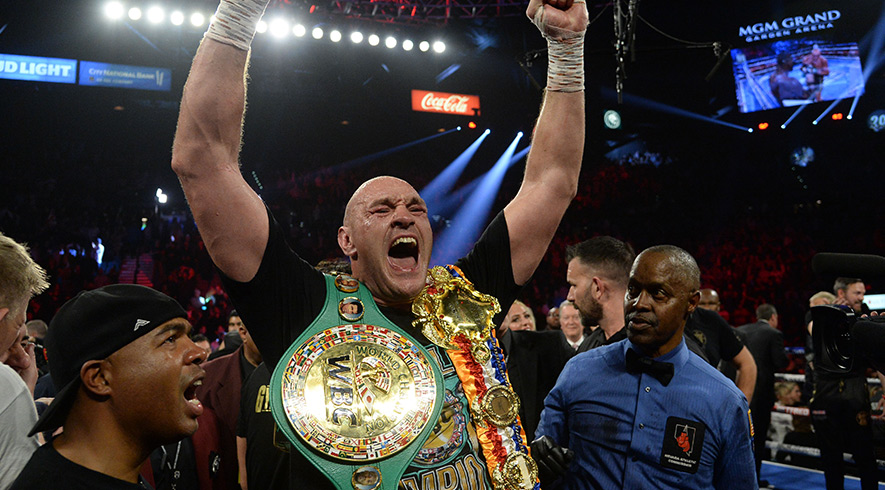By Ivan G. Goldman
Virtually every time Lateef Kayode threw his right hand at Antonio Tarver Saturday night Kayode’s left drifted down to his waist. Wise old Tarver must have spotted it right away, but he didn’t have the reflexes or the reach to step over and throw a right hook over the top.

Photo: Gene Blevins/ Hogan Photos
At first I decided that if southpaw Tarver can’t take advantage of an opening like that he deserves to lose. But after awhile I found Kayode’s middling skills offensive and began rooting for the geezer. At least Tarver, 43, knew what to do in there even if he couldn’t do it satisfactorily. In fact, Tarver gave a decent account of himself against the nasty whippersnapper out of Nigeria. He had him in trouble more than once from solid left hands and was never rocked himself. The draw was a fair outcome to a very close cruiserweight fight, as determined by three competent judges. Tarver shouldn’t have given away those early rounds.
And when Kayode, in his post-fight babble actually had the temerity to complain about Showtime, insinuating that Tarver received a gift because he was an analyst for the network, it was clear that Kayode was a revolting ingrate who doesn’t deserve to win a prize in a Crackerjack box. I could find you worthier prizefighters who put on better shows in gyms all across America.
Rather than complain of his lot, Kayode should be ever so thankful that Showtime gave him the top spot on a national telecast. If he didn’t want it to go to the scorecards he should have performed better. But what can you do? People don’t always get what they deserve. Sometimes good guys finish first, but you don’t have to be the keenest of observers to notice that lots of time they don’t. Life, as John F. Kennedy, once pointed out, isn’t fair.
As for Winky Wright, he also performed somewhat better than could be expected, considering all the negative factors in play. Everyone kept mentioning he hadn’t fought in more than three years and was 40 years old. But the most telling statistic about Wright is this: in his twelve previous outings he’d stopped only one opponent. And his peek-a-boo defense has never been terribly electrifying. But unlike fellow geezer Bernard Hopkins, for example, Wright tried to win by throwing punches, not by pulling an array of fouls out of a creepy bag of tricks. Besides, middleweight Peter “Kid Chocolate” Quillin is fun to watch.
But it’s still amazing that Showtime was suckered into buying this Night of the Geezers from the promoters. They and the network all pretended that the advanced ages of Tarver and Wright would create more suspense, making that a selling point. But there’s a failure of logic in there.
What we look for in athletic contests is plenty of action aided by qualities that include speed, power, courage, stamina, and clever movement. Not all those attributes dim with age, but most do, beginning with stamina. It’s a young man’s sport. And the many empty seats in Carson, California’s Home Depot Center showed that lots of fans agreed.
On the other hand, Tarver understands boxing is also an entertainment, and the way he gets under opponents’ skin adds spice to his shows and helps his career. Kayode isn’t the only opponent who grew to despise him.
I was there nine years ago in Las Vegas when Roy Jones made history by moving up from light heavyweight to roll right over John Ruiz and win the WBA heavyweight title. Even the most hard-bitten media guys were really impressed by his majestic accomplishment. But when we attended the post-fight press conference, Tarver, barely known at the time, sat in back shouting out that Jones was ducking him. It was both disgusting and ridiculous. It should have been one of the greatest nights of Jones’ life, and there was Tarver raining on his parade. Of course it worked. Jones chose Tarver as his next opponent. Like JFK said, life isn’t always fair.

Ivan G. Goldman’s latest novel Isaac: A Modern Fable came out in April 2012 from Permanent Press. Information HERE







